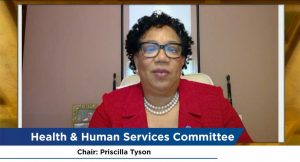WASHINGTON, D.C. — A form of congressional spending that was banned 10 years ago is coming back, but Ohio lawmakers are divided on whether that’s a good thing.
What You Need To Know
- Members of Congress are once again allowed to “earmark” funding for projects in their districts
- “Earmarking” was banned by former Ohio Rep. John Boehner 10 years ago
- Ohio Democrats argue bringing earmarks back will help underserved districts
- Ohio Republicans are worried it could lead to more corruption and wasteful spending
Toledo-area Congresswoman Marcy Kaptur, a senior Democrat on the House Appropriations Committee, said she’s thrilled a budget maneuver known as “earmarking” is coming back.
“No one knows districts better than their member of Congress,” Kaptur (D, OH-9) said. “Not the president, not the governor, not a senator, but the people who live in these communities.”
Individual lawmakers insert “earmarks” into large spending bills to funnel money to specific projects in their districts.
Lorain Community College’s tech center, the Toledo bus system, and the Veterans’ Glass Skyway all received funding through Kaptur’s earmarks before former Ohio Rep. John Boehner, as House Speaker, banned the practice 10 years ago because of cases of fraud.
As Democrats talked about reviving earmarks this year, Sen. Rob Portman (R-Ohio) led an effort to ban the practice permanently.
“They go to members because of their position in Congress, not based on the merits,” Portman told Fox Business in a recent interview. “In other words, if you’re a chairman of a committee, particularly the appropriations committee, you get the lion’s share of it.”
But Portman lost his fight.
Democrats in the House and Senate have voted to bring earmarks back, and even some Republicans are on board.
Now the lengthy process of determining which projects get the money begins. Democrats have adopted strict new rules governing earmarks.
Only 1% of discretionary spending can go to them; no for-profit companies can receive earmarks; lawmakers and their relatives can have no financial stake in them; and each lawmaker can only request 10 projects.
Sen. Sherrod Brown (D-Ohio) supports the new, more transparent approach.
“I put my name on it, I’m responsible for it, I take that responsibility,” Brown said. “And I think that’s good for the voters, it’s good for citizens in those communities, it means a more efficient and more accountable federal government.”
As of Tuesday, 12 of Ohio’s 15 U.S. Representatives have submitted earmark requests, including some Republicans who voted against bringing them back, such as Rep. Brad Wenstrup (R, OH-2).
“Though I voted against doing so, and would have preferred the prohibition on these types of requests remain in place, I will operate within these rules to best serve Ohio’s Second District constituents,” Wenstrup said in a statement.
Projects earmark funding has been requested for may be viewed here.
Three Ohio Republicans — Rep. Jim Jordan (R, OH-4), Rep. Warren Davidson (R, OH-8), and Rep. Steve Stivers (R, OH-15) — have not made requests.
“I think ‘Pelosi Payoffs’ is an appropriate term for that,” Rep. Davidson recently said referring to the Democratic House Speaker. “You give Pelosi something she wants; she’ll give you something that you need for your district. So play ball or you get nothing.”
Rep. Kaptur dismissed the criticism and said earmarks will give projects in districts like her’s a better shot at funding.
“What happened before was that our gas tax dollars come to Washington, they take those dollars, they give them back to the governor, and then our part of Ohio was systematically forgotten,” Kaptur said. “Cleveland, Columbus, and Cincinnati fared better, and Sen. Portman, quite honestly, comes from the Cincinnati area. But believe me, the Toledo-Marietta corridor did not fare well.”
Still, Democrats clearly are sensitive to the tangled history of earmarks.
Although they are coming back, the name is not.
Democrats are instead calling them “community funding projects.”




